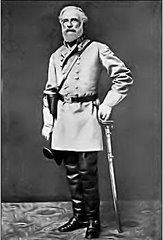Karl Marx, in his Communist Manifesto, summarized all people into two broad categories: the oppressed and the oppressor. For this reason, he offered his communist ideology to the world to end profit maximization and the exploitation of the poor. Since this time, those who hold to his philosophy, whether by name or ideology, have ignorantly classified capitalism as an economic policy of greed and exploitation. Capitalism, they presume, must encourage the "oppressed vs. oppressor" and "slave vs. slave master" world, because it is in capitalism that greedy men who only want profits abuse the honest individuals. In the 1980's, many capitalists began taking this as a compliment. Capitalism is about greed, they confessed, but this greed is a good thing. Without greed, they suggested, economies cannot grow and flourish.
Although certain elements of the "greed is good" philosophy are true and do help a society prosper economically, greed is not really what capitalism is all about. Sure, the "greedy" man, who desires to maximize profit, will hire the most labor, make the riskiest yet smartest investments, acquire the most capital, etc. And, from the positive side of this "greed," without this entrepreneur doing these things, he would not have the revenue to hire his workers (even if they are of cheap labor) or give the good workers raises. Nonetheless, it is the greedy men who ultimately fail in a capitalist economy.
In order to have real economic growth, investments must be made. This, of course, means investments of all kinds - not simply the rigid definition of investing in the stock market, gold, etc., although these investments are included. College students invest their time and money into college with the hopes of earning a good job after completing their higher education. Entrepreneurs invest in land, labor, and capital with the hopes that it will provide them with more revenue than costs, thus leading to profit maximization. Ideally, citizens invest a small portion (again, ideally) of their income to the government so that their rights will be better protected than if they were left to fend for themselves in anarchy. Everyday, investments of all varieties are made. There are two types of investments: efficient investments and inefficient investments.
The wise and diligent man makes efficient investments. He studies the economy, knows his abilities and inabilities, plants his seed, and follows through. The inefficient investor does not. He may make investments which are unwise, or, he may fail to make investments that he should make. Either scenario is fueled by his greed. On the one hand, he assumes that any investment he makes will be profitable simply because his name is on it. On the other hand, he is too lazy to make investments. His greed suffocates him and he then believes he can beat the economy without playing by the rules. The greedy man may be one who wants so much profit that he continually invests and is given nothing to show for it. He may avoid what he sees as hard-work in being employed by another already-existing entrepreneur and ignorantly open a business doomed to fail. Another greedy man may choose not to invest in labor and provide jobs. His greed, which tells him he can do all the tasks on his own, will soon fail him. The diligent men and women who make efficient investments provide jobs, invest in research and development, and, at the end of the day, only stay in business because they provide a good or service the world needs. These successes come from the diligent people - not those fueled only by greed.
A common mistake a lot of students of economics make is to see wealth as simply a piece of pie. Wealth and the world's recourses are limited and scarce - this is a fundamental truth to economics - but it is not as if one man's success comes at the expense of someone else. All this means is that the successful man has more efficiently dealt with the scarce recourses the world has, which in turn, raises the standard of living for everybody. The only reason the successful man is successful is because he gives a good or service at an affordable price to plenty of people. In his success, he may also give to the poor and needy through a charity or church, higher more workers to work for him, and place his money back into the market by his desire for goods and services. Therefore, capitalism can be as communal of an economic system as it is an individualist one, and it is energized not by greed, but by knowing the needs and desires of fellow men and women.
What do you think?
God bless America
August 2, 2010
Ryan Hampton
Monday, August 2, 2010
Subscribe to:
Comments (Atom)









